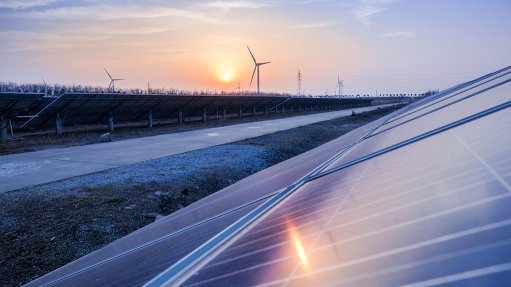
International environmental movement 350Africa! said on Thursday that for Africa to realise a just transition to renewable energy, significant investment from financial institutions and developed nations is essential and urgent.
350Africa! senior Africa organiser Rukiya Khamis was speaking the launch of REPower Afrika, a movement aimed at uniting regional community renewable-energy projects to urge financiers and governments to prioritise and increase investments in affordable and clean energy.
Khamis highlighted that African governments must create an enabling framework, enacting policies and regulations that facilitate the deployment of renewable energy and attract substantial investments.
350Africa! global campaigns director Agnes Appiah-Hall highlighted that the main barrier to renewable energy across Africa was finance.
“For the sources of finance, we must turn to the rich countries and corporations that have exploited African countries for fossil fuels and have imposed huge amounts of historical debt to drive their own prosperity within rich nations, with no regard for the development or harmful impacts on communities within Africa itself,” she said.
Appiah-Hall stated that it was time to expose the “super-rich and the most polluting industries and tax their billions”, saying monies generated by a global wealth tax could help drive forward the renewable-energy transition with the kinds of community-driven projects REPower Afrika was putting centre stage.
Khamis said Africa was disproportionately bearing the brunt of climate change, holding 17 out of 20 countries worldwide that are the most threatened by climate impacts.
She noted recent severe weather events, including severe droughts in South Africa and heavy rains in Tanzania, Kenya and Burundi, have caused food shortages, fatalities and displacement.
“Despite these alarming trends, plans to expand fossil fuel infrastructure, like the East African Crude Oil Pipeline (EACOP), continue to threaten the people and the planet,” she added.
She pointed out that renewable energy was not only a sustainable choice but also a driver of economic development.
“While fossil fuel projects like EACOP are projected to create 200 to 300 jobs in Uganda, the International Renewable Energy Agency (Irena) projects that renewable energy could generate 400 000 to 1.5-million jobs in East Africa by 2050,” she said.
Khamis explained that through the REPower Afrika campaign, communities in the EACOP region – Uganda and Tanzania – are showcasing the potential of renewable energy.
Solar installations in communities along the EACOP pipeline are improving people’s lives, providing light for children to study but also developing green jobs and enhanced energy access whilst protecting the environment, she added.
She noted that the REPower Afrika campaign showcases the power and potential of community-led efforts igniting a renewable-energy movement across the continent.
Communities were standing up against harmful fossil fuels and demonstrating that renewable energy was a viable, equitable alternative, she highlighted.
Khamis said these efforts were fuelling hope for an energy-secure future and freedom from worsening climate impacts, noting that the REPower Afrika was advocating for a future where renewable energy powered communities, protected the environment, and promoted social and economic wellbeing.
350Africa! regional director for Africa Landry Ninteretse said REPower Afrika was marking the beginning of a transformative journey where communities at the frontline of the climate crisis took the lead in demanding accessible, affordable and safe energy, while creating millions of green jobs.
“Africa’s wealth of renewable-energy potential presents a great opportunity for the continent to not only address its own energy needs but also potentially lead the global energy transition,” he said.
Ninteretse noted that by working together with governments, civil society, and community leaders, a supportive environment could be created for community-centered renewable-energy solutions, climate disasters could be averted, and a sustainable future for all could be ensured.
“This is the time for Africa and the Global South to replace the obsolete energy model and fuel a development powered by renewables,” he said.